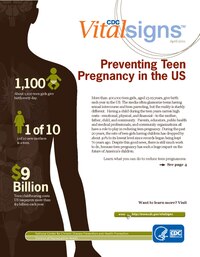
Photo from wikipedia
Adolescent pregnancy is a major health problem significantly associated with adverse effects on the health of both adolescents and their newborns. However, there is a lack of clarity over adolescent… Click to show full abstract
Adolescent pregnancy is a major health problem significantly associated with adverse effects on the health of both adolescents and their newborns. However, there is a lack of clarity over adolescent pregnancy from adolescents' perspective, particularly in the low- and middle income countries including Iran. This study aimed to explore the experiences of Iranian married female adolescent in confronting pregnancy. This qualitative research was conducted using conventional content analysis approach. Unstructured interviews with 24 female adolescents (aged 14–18 years) were used for data collection, and data analysis was done simultaneously. In this study, the participants were recruited from urban and rural primary healthcare centers (PHCs). The PHCs were selected randomly from several towns and villages of Guilan Province, Iran. The participants were recruited through a purposive sampling method. After data analysis, four categories were extracted from 24 interviews, including "actively accepting pregnancy", "passively accepting pregnancy", "hope and satisfaction" and "frustration and regret". These categories formed the main theme of "paradox of acceptance" in confronting pregnancy. The concepts that have emerged based on the results of the study can potentially help develop comprehensive and age-tailored health promotion programs to confront pregnancy more successfully for female pregnant adolescents. Further research, particularly on the long-term effects of teenage motherhood is suggested.
Journal Title: PLoS ONE
Year Published: 2019
Link to full text (if available)
Share on Social Media: Sign Up to like & get
recommendations!